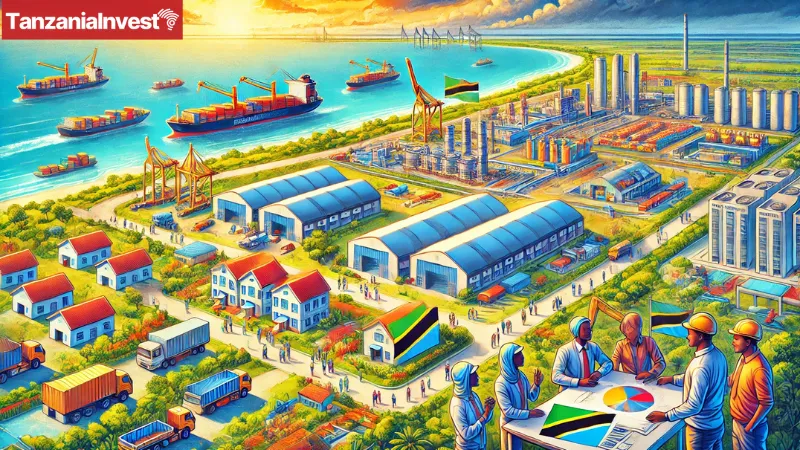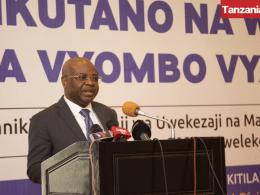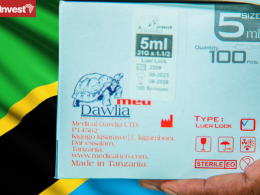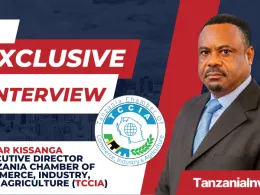The Export Processing Zones Authority (EPZA) has unveiled a Collective Investment Scheme (CIS) as a strategic funding solution to address infrastructure gaps in Tanzania’s Special Economic Zones (SEZs).
EPZA Director General Charles Itembe announced the initiative on December 3, 2024. It aims to finance the construction of industrial sheds and warehouses critical to supporting industrial activities.
The CIS seeks to attract contributions from various investors, including retail investors, pension funds, and corporations, to pool substantial resources for industrial real estate projects.
While the exact fundraising target has yet to be disclosed, the scheme will focus on developing infrastructure within the Bagamoyo Special Economic Zone (SEZ), spanning 980 hectares.
Bagamoyo SEZ has been earmarked for transformation into an industrial city, with ongoing projects to establish key infrastructure such as roads and water systems.
According to Mr. Itembe, the CIS will provide the necessary funds to accelerate the completion of industrial facilities in Bagamoyo, enabling the area to attract more investors even before the project’s full completion.
“The Collective Investment Scheme targets the Industrial Real Estate Trust Fund to develop sheds and warehouses for lease to industrial investors,” said Mr. Itembe. Surveys indicate significant demand for such infrastructure, underscoring the importance of this initiative.
EPZA plans to release an information memorandum approved by the Capital Markets and Securities Authority (CMSA) to market the scheme and provide detailed participation guidelines.
Why the Collective Scheme?
Raising capital for large-scale industrial projects has been a longstanding challenge for Tanzania’s SEZs. Traditional funding mechanisms often fall short, prompting the need for innovative solutions like the CIS. By leveraging contributions from diverse investors, the scheme ensures a stable funding source while mitigating individual financial risks.
“Preliminary assessments show that investments in industrial sheds and warehouses hold potential returns comparable to those of government and corporate bonds,” noted Mr. Itembe. “This scheme is not just a financing tool but an opportunity to create wealth and foster economic growth, especially by involving local investors.”
EPZA and Bagamoyo Special Economic Zone (SEZ)
Between March 2021 and February 2024, EPZA registered 45 projects across various regions, leading to a capital investment of approximately USD 1.17 billion. These initiatives have created around 20,674 jobs and generated exports worth USD 397.64 million.
Additionally, over the past decade, EPZA has facilitated investments totaling USD 2 billion, resulting in export earnings of about USD 2.5 billion.
The Benjamin William Mkapa Special Economic Zone (BWM SEZ) in Dar es Salaam alone hosts 21 active production facilities, employing more than 4,500 individuals directly and 8,600 indirectly. This zone alone has attracted capital investments of USD 51.9 million and facilitated exports worth USD 160.8 million.
With the Benjamin William Mkapa SEZ in Dar es Salaam now fully occupied, the Bagamoyo SEZ represents the next frontier for industrial expansion in Tanzania. The site covers an area of 9,800 hectares located in Bagamoyo, Coastal Region, 50km North of Dar es Salaam.
According to EPZA’s data, the Park has already accommodated 11 licensed companies, most of which are at different levels of development; with the exception of one which is fully operational.










